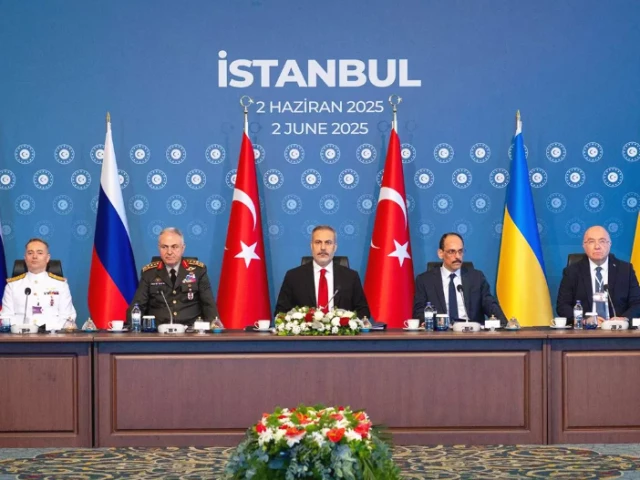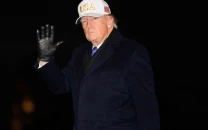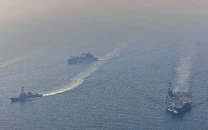Russia, Ukraine to swap 2,000 POWs, 6,000 bodies in largest war exchange
Russia and Ukraine agree to biggest POW swap, return of 6,000 bodies after Istanbul talks mediated by Turkey

Russia and Ukraine have agreed to the largest prisoner of war (POW) exchange and return of fallen soldiers since the conflict began, following a second round of direct talks in Istanbul.
Despite the breakthrough on humanitarian grounds, the discussions produced little movement toward a ceasefire, highlighting the enduring diplomatic deadlock.
Delegations from both sides met on Monday at Istanbul’s historic Ciragan Palace, with Turkish officials facilitating the session. Ukrainian Defence Minister and lead negotiator Rustem Umerov confirmed an "all-for-all" agreement covering severely wounded POWs and captured soldiers aged 18 to 25.
Russia’s envoy Vladimir Medinsky said the swap would involve at least 1,000 prisoners from each side.
In addition, the parties agreed to the mutual return of around 6,000 fallen soldiers’ remains — a significant step in ongoing humanitarian coordination despite battlefield hostilities.
Ukrainian President Volodymyr Zelenskyy, speaking from Lithuania, said Ukraine was preparing for the release of the next group of captives. He added that Kyiv had submitted to Russia, via Turkish mediators, a list of Ukrainian children it says were abducted, demanding their return.
While the prisoner swap deal marked a rare instance of cooperation, hopes for a broader truce remained out of reach. Ukraine again proposed an unconditional ceasefire, which Russia rejected.
Instead, Medinsky said Moscow had offered a temporary two- to three-day ceasefire in specific frontline areas to recover the dead. Ukraine's Deputy Foreign Minister Sergiy Kyslytsya criticised the limited offer, reaffirming Kyiv’s position for a comprehensive cessation of hostilities.
Russia presented a memorandum outlining its terms for ending the war, including Ukraine’s withdrawal from the four annexed regions, a halt to military mobilisation, suspension of Western arms deliveries, and constitutional neutrality.
Ukrainian officials said they would review the proposal over the coming week and suggested resuming talks between 20 and 30 June.
The document also calls on Ukraine to lift martial law, hold national elections, and grant Russian equal status as an official language — longstanding demands that Kyiv and its allies have repeatedly dismissed.
Turkish President Recep Tayyip Erdoğan praised the talks as “magnificent” and expressed hopes of hosting a summit between Presidents Putin and Zelenskyy — potentially even involving former U.S. President Donald Trump. Turkish Foreign Minister Hakan Fidan, who chaired the talks, confirmed that ceasefire conditions were discussed but said no agreement had been reached.
As negotiations unfolded, violence on the battlefield intensified. Ukrainian officials claimed responsibility for drone attacks targeting Russian airbases in the Arctic, Siberia, and the Far East — operations they say damaged or destroyed over 40 warplanes and significantly degraded Russia’s strategic bomber fleet.
President Zelenskyy hailed the mission as a “turning point” in the war, saying it demonstrated Ukraine’s expanding military reach.
Russia, in turn, launched its largest drone assault of the war, deploying 472 drones in a single day, according to Ukrainian sources. Most were aimed at civilian infrastructure, Ukrainian air force officials said.
Meanwhile, Russian shelling in Ukraine’s Kherson region killed three and injured 19, including children. Separate strikes near Zaporizhzhia left five dead and nine wounded.
Russia’s Ministry of Defence claimed it intercepted 162 Ukrainian drones across eight regions and Crimea overnight, while Ukraine reported downing 52 of the 80 drones Russia launched.
Zelenskyy warned that failure to secure progress in Istanbul would require tougher Western sanctions. “If there’s no breakthrough, then new, strong sanctions must follow — urgently,” he said.
Despite the grim outlook for peace, the humanitarian prisoner and body exchange agreement stood out as a rare success in a war that has otherwise resisted diplomatic resolution.






















COMMENTS
Comments are moderated and generally will be posted if they are on-topic and not abusive.
For more information, please see our Comments FAQ